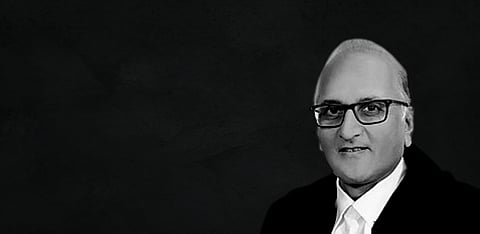

Justice Bhat was speaking at a lecture held in New Delhi on Sunday that brought together legal scholars who shared their thoughts on the relevance of constitutional values in legal education.
– – –
"EVEN the darker parts of constitutional history must be taught to every generation", Justice S. Ravindra Bhat of the Supreme Court told the audience during the first lecture, titled Constitutional values in legal education, of the 'Constitutional Culture Lecture Series' organised by the Centre for Constitutional Values at the BML Munjal University School of Law, on Sunday.
While Justice Bhat chaired the proceedings, Professor Philipp Dann, Chair Professor of Public Law, Humboldt University of Berlin, Germany, delivered the keynote speech on the importance of constitutional values in legal education, in the presence of Prof. Shyam Menon, Vice Chancellor of the BML Munjal University. The event was moderated by Prof. Pritam Baruah, Dean of the Law School.
In his opening remarks, Justice Bhat told the audience that learning constitutional values in legal education allows one to understand the constitution from the perspective of people.
He said, "There is a centrality to legal education because one has to make an internal sense of the Constitution in the daily lives of the people."
Terming the Indian Constitution as 'people-centric', Justice Bhat noted that, of course, there is the interdependence of constitutional values; for instance, in how liberty matters to the individual and how federalism is the choice we took to operate our constitutional system.
But there is also indeterminacy in the Constitution, he pointed out. That indeterminacy, he said, gets addressed when one can relate constitutional values to real life.
Addressing indeterminacy as one of the constitutional challenges, Prof. Dann agreed with Justice Bhat, and furthered that inculcating legal education allows one to understand the constitutional way of living and you need to train lawyers on what to expect from the Constitution and what not to.
Prof. Dann noted that constitutional cultures are local but acknowledged that there are similarities which can be unearthed through legal education. He said that the relevance of legal education in the present time cannot be underestimated as it creates resilience in society.
Prof. Menon, speaking of constitutional resilience, said that it builds on the idea of constitutionalism, and requires one to gain the necessary critical tools to ask questions. Constitutionalism in its most formal sense requires putting limitations on powers, and legal education must build that required skills.
Further, Prof. Dann, speaking on similar lines to Justice Bhat, stated that law is definitely an authoritative text but it is also social practice. Law is the backbone of economic and political values, and that makes it inherently powerful, he pointed out.
"Law, for it to be just, must reflect the reality of the society…To address the complexity, the students need to learn that law serves everyone in society and that the answers to the complexity are not always definite…Legal education should prepare students for complexity and it must prepare students to recognise the social purpose and power of it." Prof. Dann noted.
Thus, Prof. Dann suggested that there must not just be a solid understanding of the doctrines of the constitution, but also the normative texts.
In the concluding remarks, Justice Bhat urged that the understanding of constitutional values must be built in schools.
He said, "In my school, there was no understanding of what the Constitution means to society and how to ensure that it is safeguarded. When I joined college, we had reached the turmoil of the Emergency and I read newspapers without realising it was fully censored."
That is when I turned to law; that was an awakening part for me, Justice Bhat noted.
He further told the audience about seeing jurist and liberal economist Nani Palkhivala arguing in the Minerva Mills' case in 1980. "I brought my first copy of the Constitution the very next day," he stated.
Justice Bhat concluded by saying that even though schools at the primary level may not be comfortable in teaching the constitutional freedoms of the children, the broad set of constitutional freedoms such as that of speech and expression, the role of the Election Commission and how the government can be held accountable, should be taught. This will create awareness and the students will turn out to be informed citizens.
The Jallianwala Bagh massacre, he said, is one of the examples where the constitutional values of the right to liberty, freedom of speech and the right to hold peaceful assembly intersect with each other. If this is not taught, constitutional values will not resonate with people. In fact, in criminal law classes, law students must include issues like the importance of bail, the value of speedy trial, and the loss of liberty in wrongful incarceration in the context of personal liberty, he suggested.
Jurist and legal scholar, Prof. M.P Singh, who was also present at the lecture, commented on how he has not been able to digest the expensive legal education imparted by legal schools these days. "The kind of education which we are giving now, that only is available to certain privileged people. It cannot be available to people like me…"